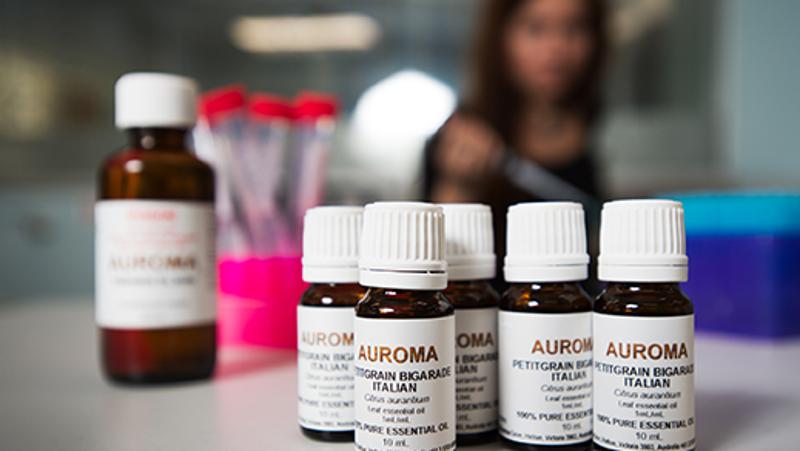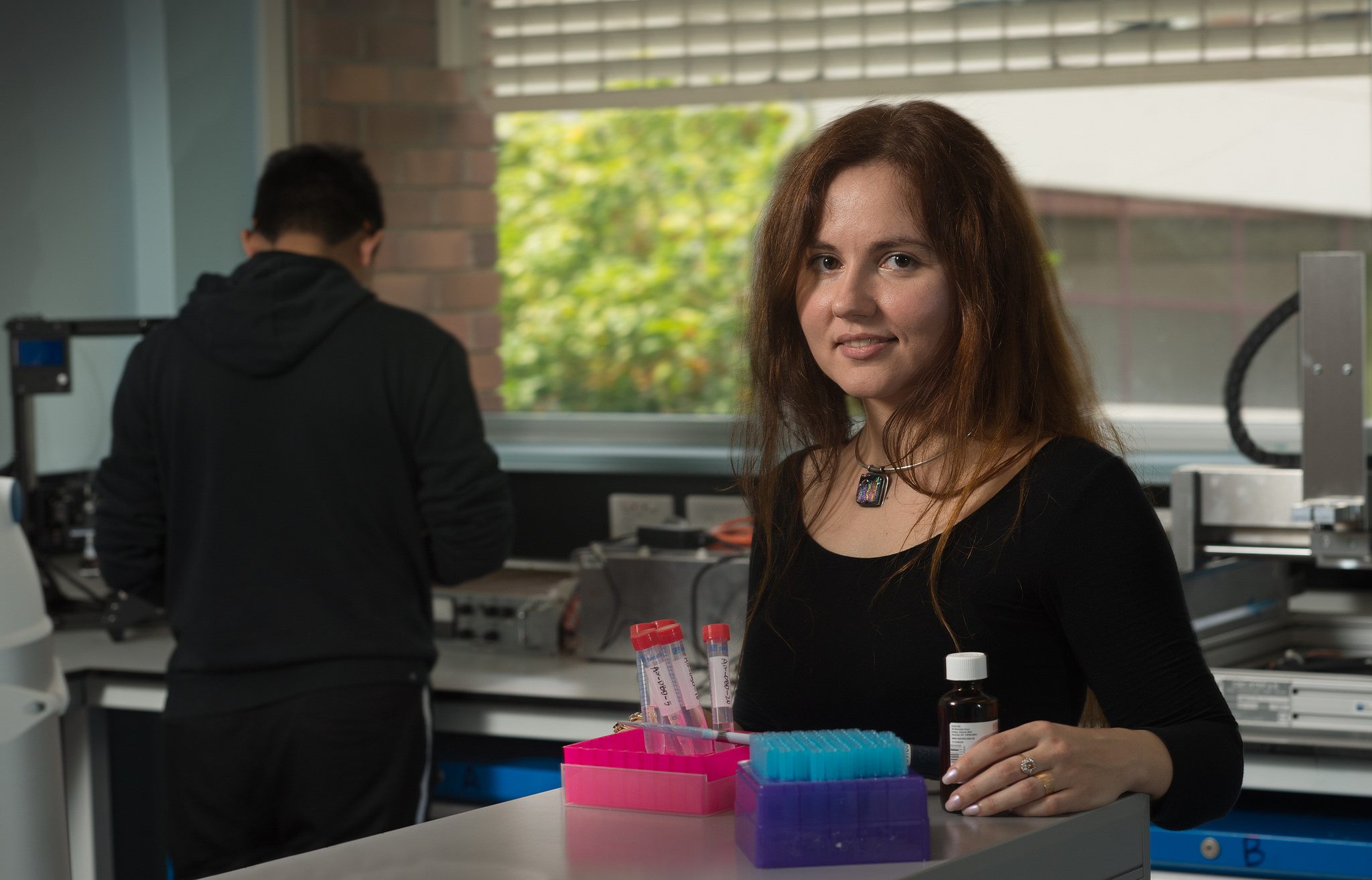
QUT researchers may have found a possible alternative way to kill antibiotic-resistant bacteria that cause common infections in hospitals and other healthcare settings.
Lead researcher QUT’s Dr Kateryna Bazaka said the research team had found that ‘zapping’ components of naturally antiseptic essential oils, such as tea tree oil, with an ionised gas, also known as plasma, could significantly increase their potency and ability to kill bacteria.
“Ongoing exposure of bacteria to different antibiotics in hospitals is a big problem because they can build resistance and become very difficult to kill,” said Dr Bazaka.
“Importantly, not only can they become tolerant to the drug to which they have been exposed, but also to other antibiotics that have a similar mode of action, so-called cross-tolerance.
“Antibiotic resistance spreads rapidly among bacteria because unlike us, bacteria can readily swap DNA material that carries antibiotic resistance.
“Not surprisingly, there are more and more bacteria becoming tolerant to common antibiotics, with some disease-causing bacteria developing resistance to all known antibiotics.
“The development of new antibiotics is a lengthy and costly process. It is made more difficult by bacterial cross-resistance, which means that pharma companies need to develop drugs with a completely different mode of action to existing antibiotics.”
Instead of following the conventional route of drug development, the QUT-led multinational team looked at finding a way to make existing moderately-active natural antibiotics more potent so that could replace common drugs in some applications.
“We wanted to see if we could use plant extracts and oils as an alternative to conventional antibiotics,” Dr Bazaka said.

“Similar to humans, plants are under continuing attack from a variety of bacteria, fungi and viruses. To stand a fighting chance, plants have evolved a fairly sophisticated defence system, where they produce a multitude of molecules that all target a slightly different process within the invader.
“Because the pathogen is attacked simultaneously from different sides, it is very difficult for it to develop resistance.
“Humans have taken advantage of these plant-derived antimicrobial ‘cocktails’ of molecules for thousands of years.”
With the development of much stronger synthetic antibiotics, the use of these natural extracts and oils declined. However, the threat of antibiotic resistance brought the spotlight back onto these molecules.
“We now have the tools to explore how these natural molecules interact with bacterial and human cells, and exploit potential synergies to use them in combination with each other and with other therapies.”
QUT Professor Ken Ostrikov, who leads the international plasma network, said that plasma-activated plant oils would not replace synthetic antibiotics.
“They could, however, expand our arsenal of bacteria-fighting agents and provide an alternative for the treatment of wounds or chest infections,” he said.
According to Dr Bazaka, in the future, the team would be interested to see if the same approach could be used to develop a plasma-based therapy for the treatment of cancer.
“We are seeking funding to understand the science of plasma activation and how it can be translated into real life applications,” she said.
The study was published in Nano Futures.
QUT Media contacts:
Niki Widdowson, 07 3138 2999 or n.widdowson@qut.edu.au
After hours: Rose Trapnell, 0407 585 901 or media@qut.edu.au




